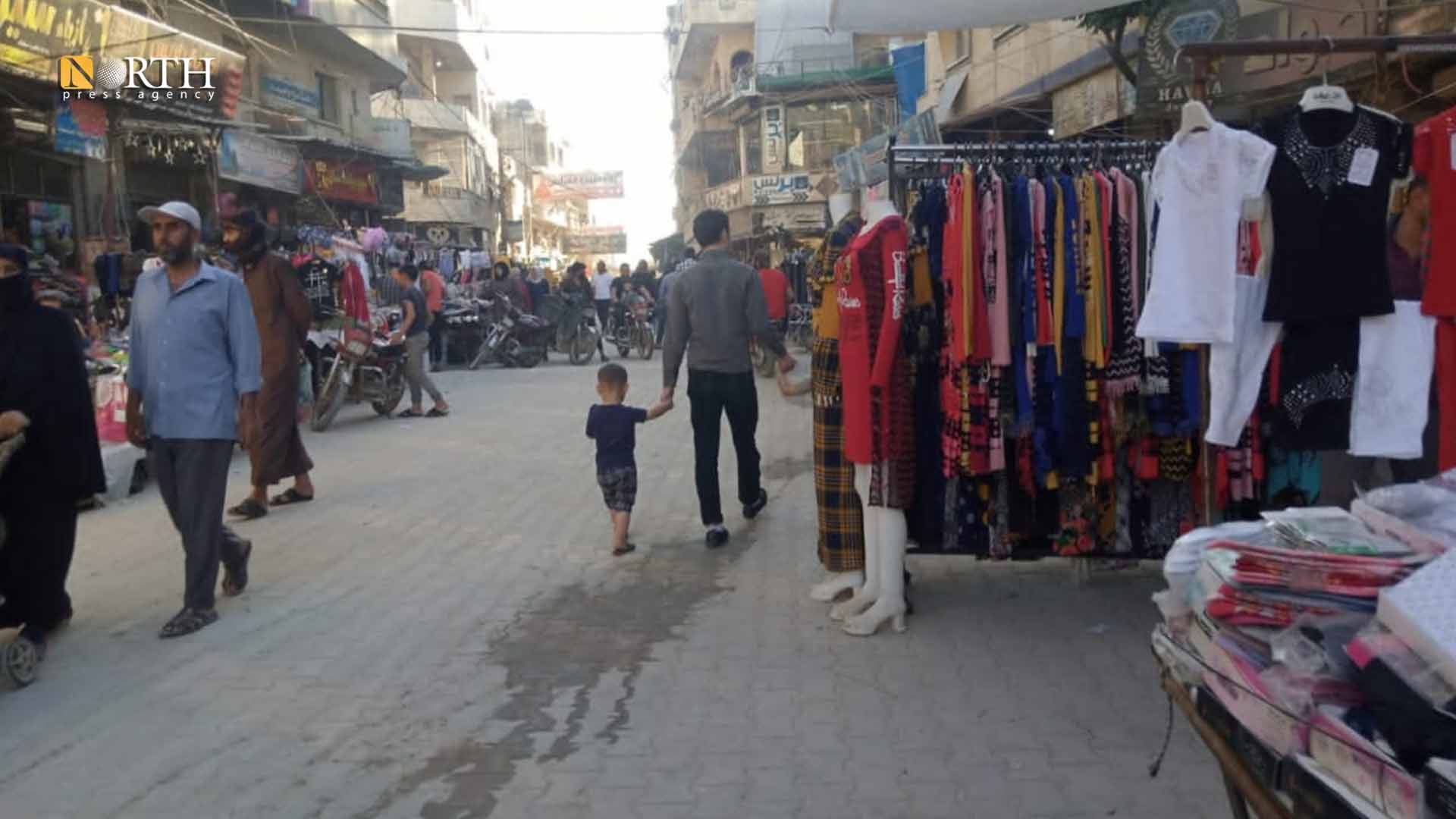Iranian goods spread in Syria’s Idlib markets
IDLIB, Syria (North Press) – Many kinds of Iranian goods spread in the markets in Idlib city, northwest Syria amid locals’ inquiries about how they entered, who are the officials promoting such goods and the abstain of Hayat Tahrir al-Sham (HTS, formerly al-Nusra Front) to confiscate them.
According to locals, the spread of Iranian goods is considered an economic invasion with the purpose to increase influence, the same thing it did in government-held areas.
Infants’ milk, dates, fruits, pistachio shells used for heating, ceramics, mineral oil, line power supplies, drainage supplies are the most Iranian goods enter Idlib’s markets.
Khaled al-Abdullah, a pseudonym for a displaced person who lives in Idlib, considers the spread of Iranian goods as an unacceptable matter.
“It is unacceptable to promote for goods belonging to a nation that contributed to the killing, immigration and displacement of the Syrians,” he said.
Al-Abdullah added that the Salvation Government, the civil wing of the HTS, bears full responsibility in spreading and importing such goods.
He pointed out that it is very necessary to chase those facilitating entry of Iranian goods to Idlib. Idlib is about to be a market for distributing and retailing Iranian goods.
Iranian goods are relatively cheap compared to others, increasing people’s turnout to buy them despite their ill quality, residents said.
Mustafa al-Zein, an alias for an artisan worker in the city of Sarmada, said the majority of workshops he works in, rely mainly on Iranian goods such as iron, line power supplies and drainage supplies.
Idlib’s traders said Iranian products enter the city through three main routes.
Some products enter through illegal ways from Syrian government-held areas to territories controlled by the Syrian armed opposition factions in Afrin city and the Euphrates Shield areas. HTS leaders contribute in the smuggling process from the crossing points of al-Ghazawiyah and Deir Ballout.
The other part enters according to coordination between traders operating in the Syrian government-held areas and leaders of the HTS. These goods come from the frontlines in the eastern countryside of Idlib and the western countryside of Aleppo in turn for large amounts of money to facilitate the passage of loading trucks.
Additionally, a part of the Iranian goods cross the Bab al-Hawa border crossing with Turkey into the Syrian territory.
Syrian traders residing in Turkey promote for the Iranian goods and they hid origin by changing manufacture casings and place of manufacture.
However, some inner casings, which are written in Iranian, are kept even after being shipped through Bab al-Hawa crossing into Idlib.

